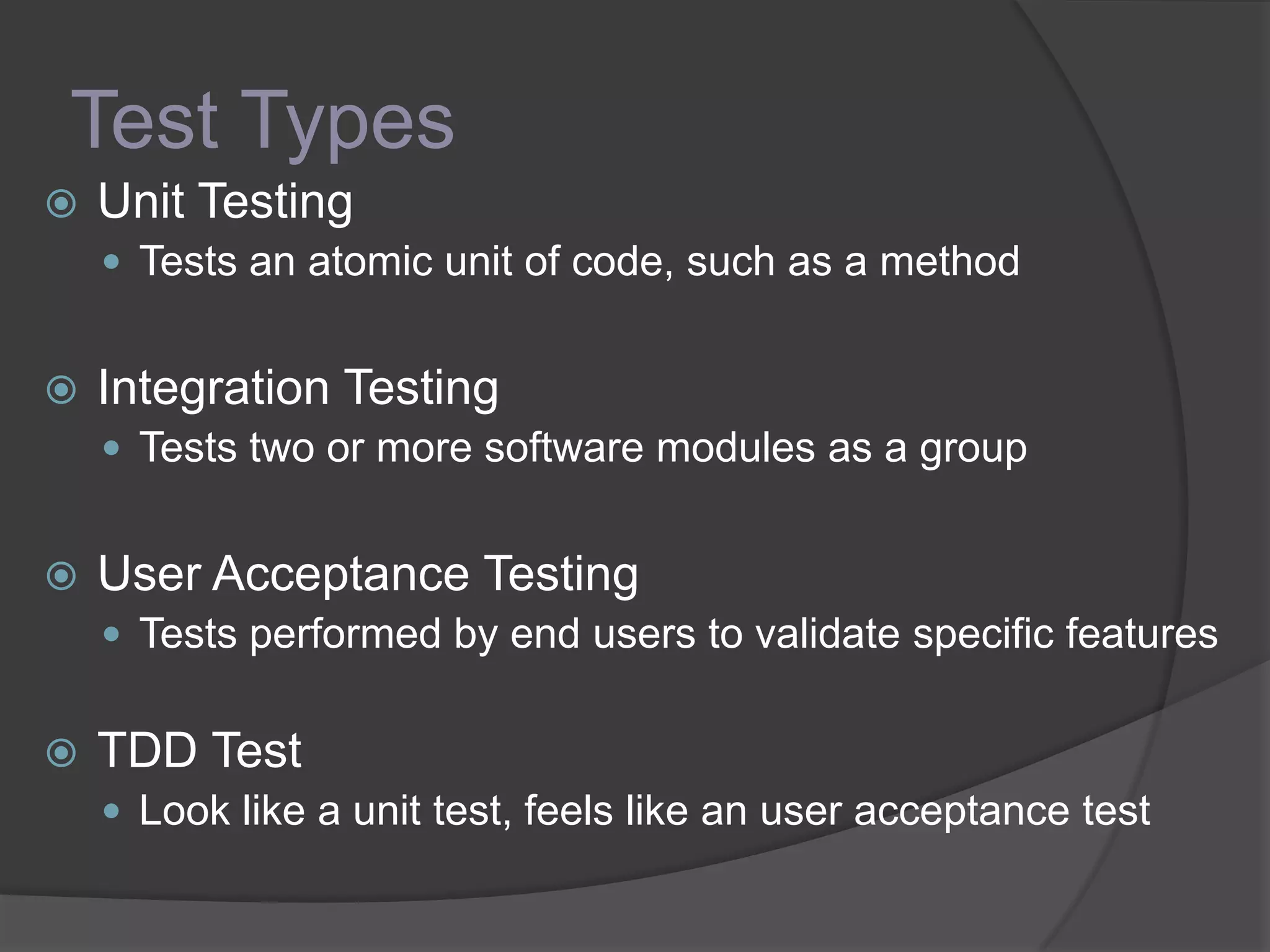Unit testing in .NET provides several benefits such as encouraging better design, serving as documentation, and providing a safety net for refactoring. There are different types of tests like unit, integration, user acceptance, and test-driven development tests. A unit test invokes a method or class and checks assumptions about its logical behavior. Unit tests exercise single units of code while integration tests exercise how units work together. Tests should target logical code with decisions. Good tests are automated, easy to implement, run quickly, and can be run by anyone at any time. The document outlines guidelines for creating test projects, classes, and methods along with .NET testing frameworks, techniques like mocking and dependency injection, code coverage, and qualities of trust









![Test Project Creation Guidelines
Create separate test projects for unit tests and
integration tests. This will allow for calling unit
tests from the build process in the future
Test project naming convention:
[Project Name].UnitTests
[Project Name].IntegrationTests](https://image.slidesharecdn.com/unittestingbasics-140413113439-phpapp01/75/Unit-testing-basics-with-NUnit-and-Visual-Studio-10-2048.jpg)
![Test Class Guidelines
Each class being tested should have its own test
class defined (the one-test-class-per-class pattern)
Create utility methods if multiple tests need the same
functionality
Test class naming convention:
[Class Name]Tests.cs
where Class Name is the name of the class being
tested.](https://image.slidesharecdn.com/unittestingbasics-140413113439-phpapp01/75/Unit-testing-basics-with-NUnit-and-Visual-Studio-11-2048.jpg)
![Test Method Guidelines
Each public method exposed by the class under
test should be tested
// Configure/Setup
// Action
// Assert
Note: you can test Internal methods (if required). Use
InternalsVisibleTo[<Project>.UnitTests] attribute in AssemblyInfo.
Test method naming convention:
[Method Name]_[Scenario]_[ExpectedBehavior]
Examples:
ValidateCreditCard_InvalidExpiryDate_ThrowsException()
ValidateCreditCard_InvalidAddress_ThrowsException()](https://image.slidesharecdn.com/unittestingbasics-140413113439-phpapp01/75/Unit-testing-basics-with-NUnit-and-Visual-Studio-12-2048.jpg)
![NUNIT Test Framework Attributes
Define class as a TestClass
[TestFixture]
public class FileManagerTests { }
Define a test method test a single method and expected
behavior
[Test]
public void IsValidFileName_InvalidFilePath_ThrowException(){ }
Use setup attribute to call required code before each test in the
class. For e.g. InitializeConfiguration()](https://image.slidesharecdn.com/unittestingbasics-140413113439-phpapp01/75/Unit-testing-basics-with-NUnit-and-Visual-Studio-13-2048.jpg)










